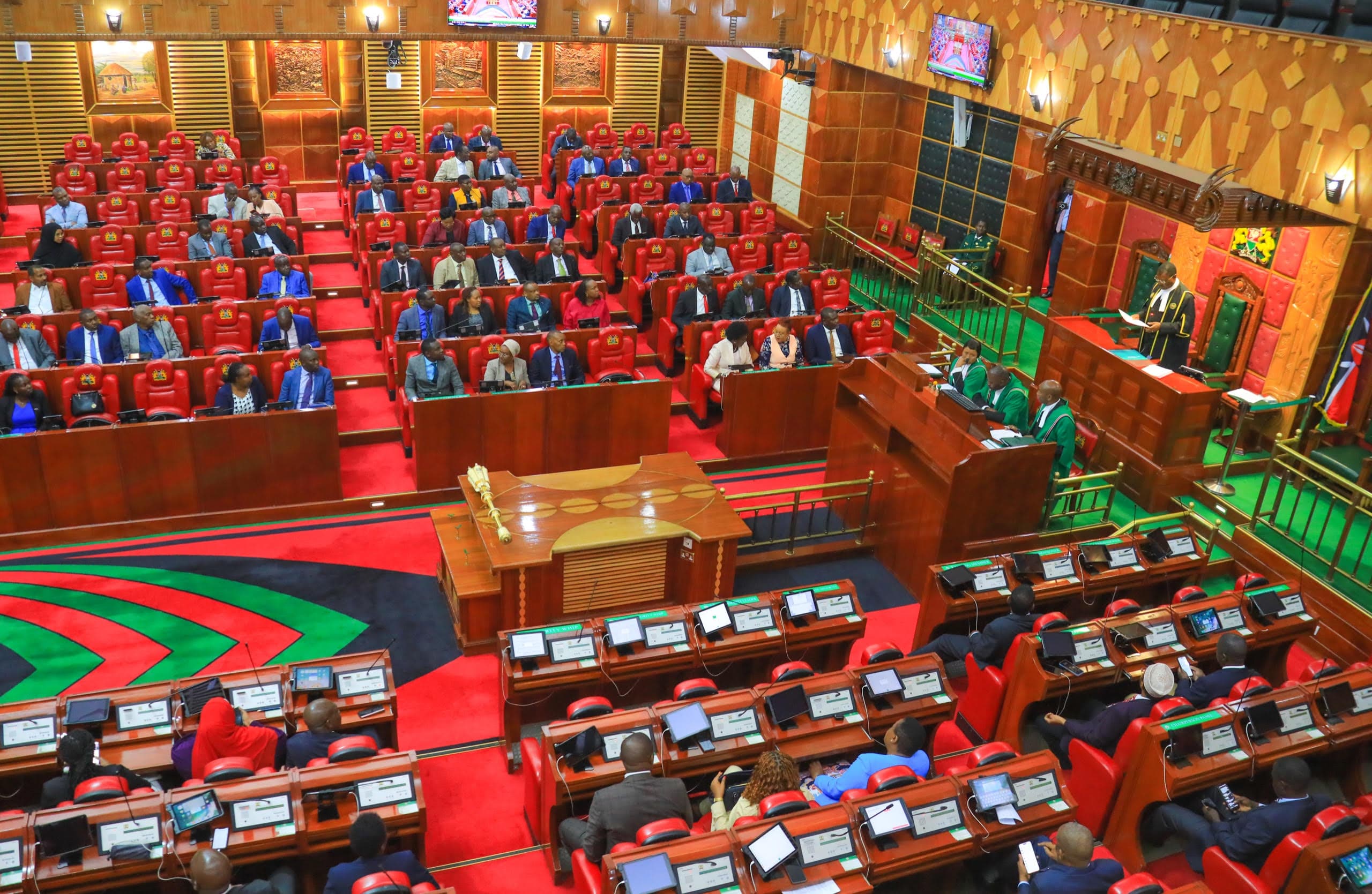We're loading the full news article for you. This includes the article content, images, author information, and related articles.
A new legislative push to license agricultural advisors aims to curb losses from unqualified practitioners, but faces strong opposition from farmer groups who fear it will criminalise traditional knowledge and increase costs for smallholders.

The Kenyan Parliament is currently deliberating the Agricultural Professionals Registration and Licensing Bill (National Assembly Bill No. 19 of 2024), a law designed to formally regulate the agricultural advisory sector. Sponsored by the Chairperson of the Departmental Committee on Agriculture and Livestock, Hon. (Dr.) John Kanyuithia Mutunga, MP for Tigania West, the bill aims to establish a legal framework for the training, registration, and licensing of all individuals providing agricultural guidance. The proposed legislation, which passed its first reading on Wednesday, 5th June 2024, and is now in its second reading, would create the Agricultural Professionals Registration and Licensing Board to oversee the sector. Proponents argue this is a long-overdue measure to protect farmers from unqualified practitioners—or "quacks"—whose advice can lead to significant financial and crop losses, mirroring professional standards in fields like engineering and law. Hon. Mutunga stated in Parliament that the bill is meant to "enhance professional standards, promote ethical practices, and strengthen accountability in the agricultural sector."
While no official government study has quantified the specific economic damage from unqualified advice alone, the impact of an unregulated agricultural input market is well-documented. A 2018 report by the Overseas Development Institute (ODI) estimated that counterfeit inputs cost Kenya's agriculture sector approximately KSh 10 billion annually. Research from the Kenya Association of Manufacturers (KAM) and the Anti-Counterfeit Agency (ACA) in 2021 suggested that up to 30% of seeds and fertilizers in the market could be counterfeit. A 2025 survey by the ACA further identified the agriculture sector as the most targeted by counterfeiters, with 89.16% of respondents encountering fake pesticides and herbicides. These fake inputs can slash crop yields by 30-50%, according to the Alliance for a Green Revolution in Africa (AGRA), severely impacting farmer incomes and national food security. The bill's supporters contend that professionalising the advisory chain is a critical step in combating the spread of both poor practices and counterfeit products.
Under the proposed law, anyone managing or dispensing agricultural inputs such as fertilisers, feeds, or chemicals without being registered and licensed would commit an offence. The bill requires individuals to hold a recognised degree, diploma, or certificate in an agricultural specialty to qualify for registration. Those found in contravention face a fine not exceeding KSh 200,000, a prison term of up to two years, or both. The bill also establishes a Disciplinary Committee within the Board to handle cases of professional misconduct. During parliamentary committee hearings, stakeholders like the Kenya Society for Agricultural Professionals (KESAP) and the Kenya National Farmers' Federation (KENAFF) suggested amendments, including categorising professionals into tiers such as Technicians (certificate), Assistants (diploma), and Specialists (degree) to reflect different qualification levels.
Despite its stated intentions, the bill has ignited fierce resistance from farmer advocacy groups. The Kilimo Cha Haki coalition has described the legislation as "punitive and unconstitutional," arguing it threatens to criminalise farming for those who rely on generational knowledge rather than formal education. Mary Kathomi of Kilimo Cha Haki has raised concerns that the bill, one of nine recent agricultural bills, duplicates the work of 15 existing state agencies under the Ministry of Agriculture, such as the Agriculture and Food Authority (AFA) and the Kenya Plant Health Inspectorate Service (KEPHIS). Opponents argue the stringent requirements and fees will disproportionately harm small-scale farmers and agro-dealers, potentially increasing the cost of inputs and food production. In response to these criticisms, Hon. Mutunga has clarified that the bill is not meant to target farmers themselves but rather the advisors and professionals they rely on.
Kenya's move to regulate its agricultural advisors is not occurring in a vacuum. In neighbouring Uganda, the Agricultural Chemicals (Control) Act of 2006 requires agro-dealers to undergo a mandatory certification course on the safe use and handling of pesticides. A 2023 study in Uganda found that certified agro-dealers were significantly more likely to have knowledge of Integrated Pest Management (IPM) and to sell environmentally benign biopesticides compared to their non-certified counterparts. However, the same study noted that nearly half of agro-dealers in Uganda were not certified, highlighting challenges in enforcement. Studies on the effectiveness of agricultural extension services across sub-Saharan Africa show mixed results, often hampered by underfunding and a low ratio of extension officers to farmers. In Kenya, the current ratio is estimated at 1:1,093, far below the FAO-recommended 1:400, a gap the bill's proponents hope a professionalised private sector can help fill. As the bill proceeds through Parliament, the debate encapsulates a central tension in agricultural development: how to balance the need for professional standards and safety with the risk of marginalising the smallholder farmers who form the backbone of Kenya's economy. FURTHER INVESTIGATION REQUIRED on the specific overlaps between the proposed Board and existing regulatory agencies.
Keep the conversation in one place—threads here stay linked to the story and in the forums.
Sign in to start a discussion
Start a conversation about this story and keep it linked here.
Other hot threads
E-sports and Gaming Community in Kenya
Active 9 months ago
The Role of Technology in Modern Agriculture (AgriTech)
Active 9 months ago
Popular Recreational Activities Across Counties
Active 9 months ago
Investing in Youth Sports Development Programs
Active 9 months ago